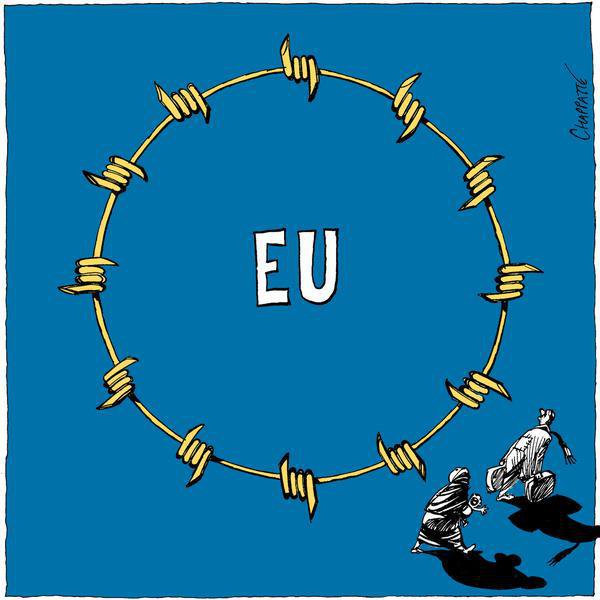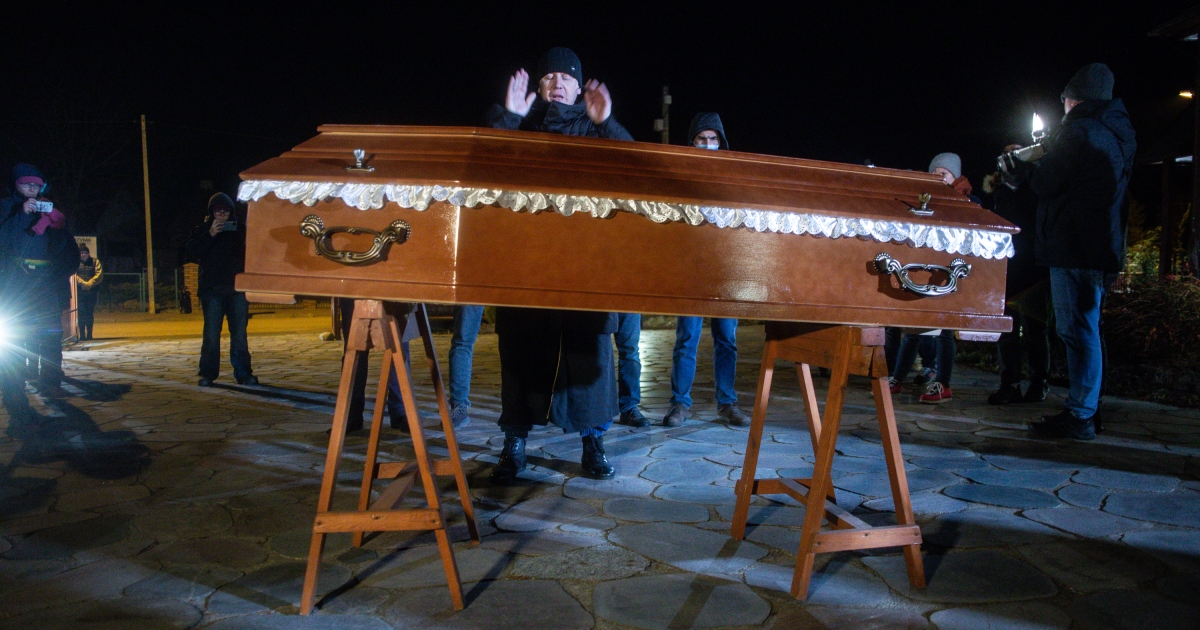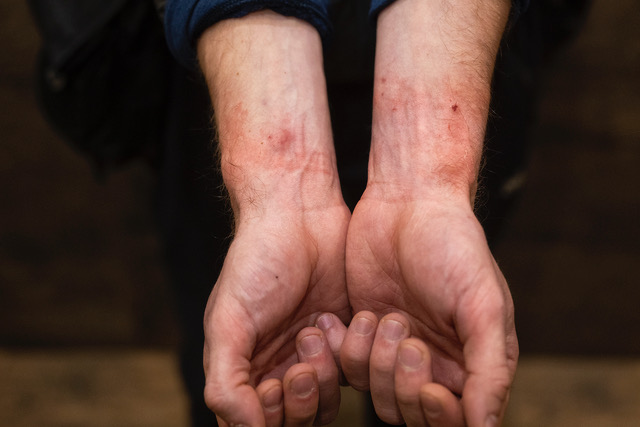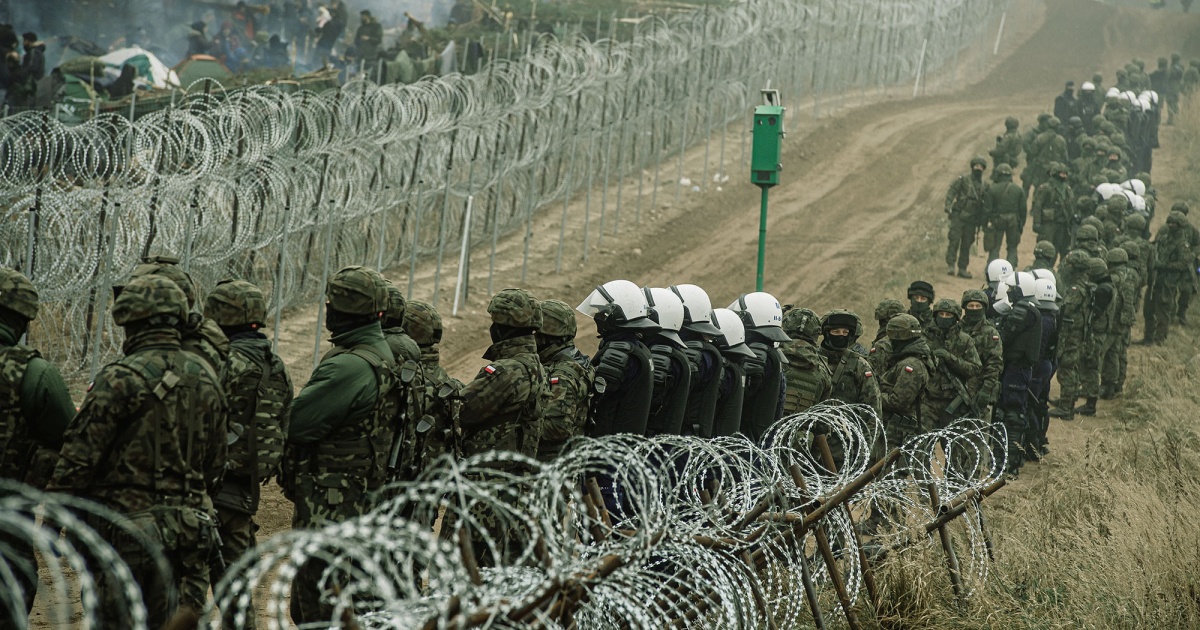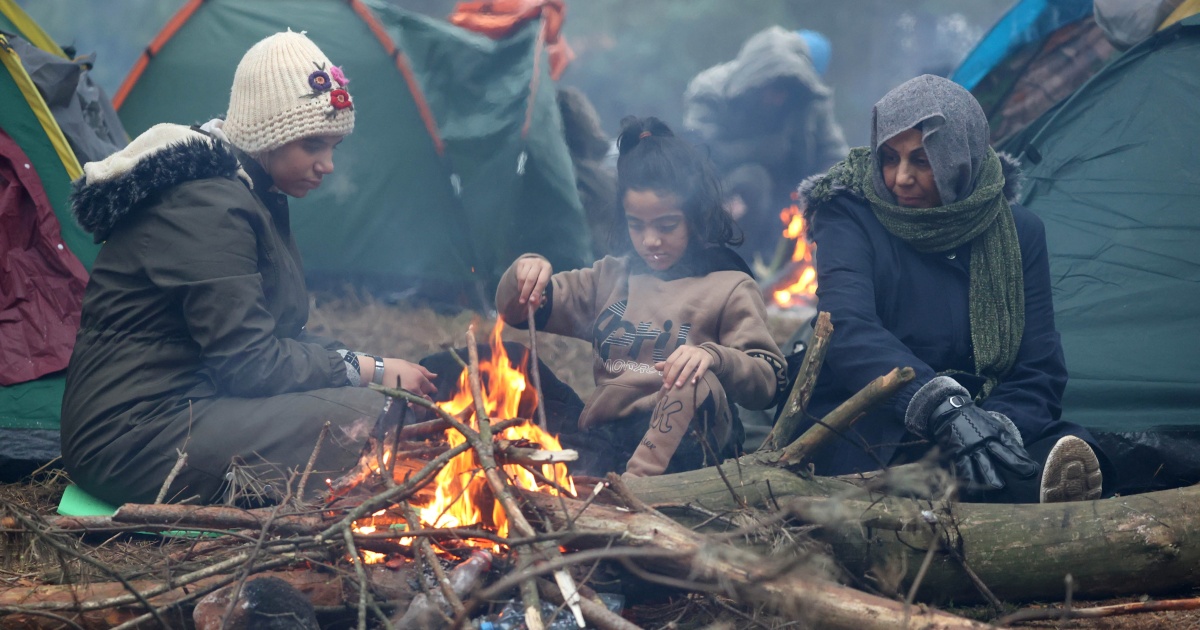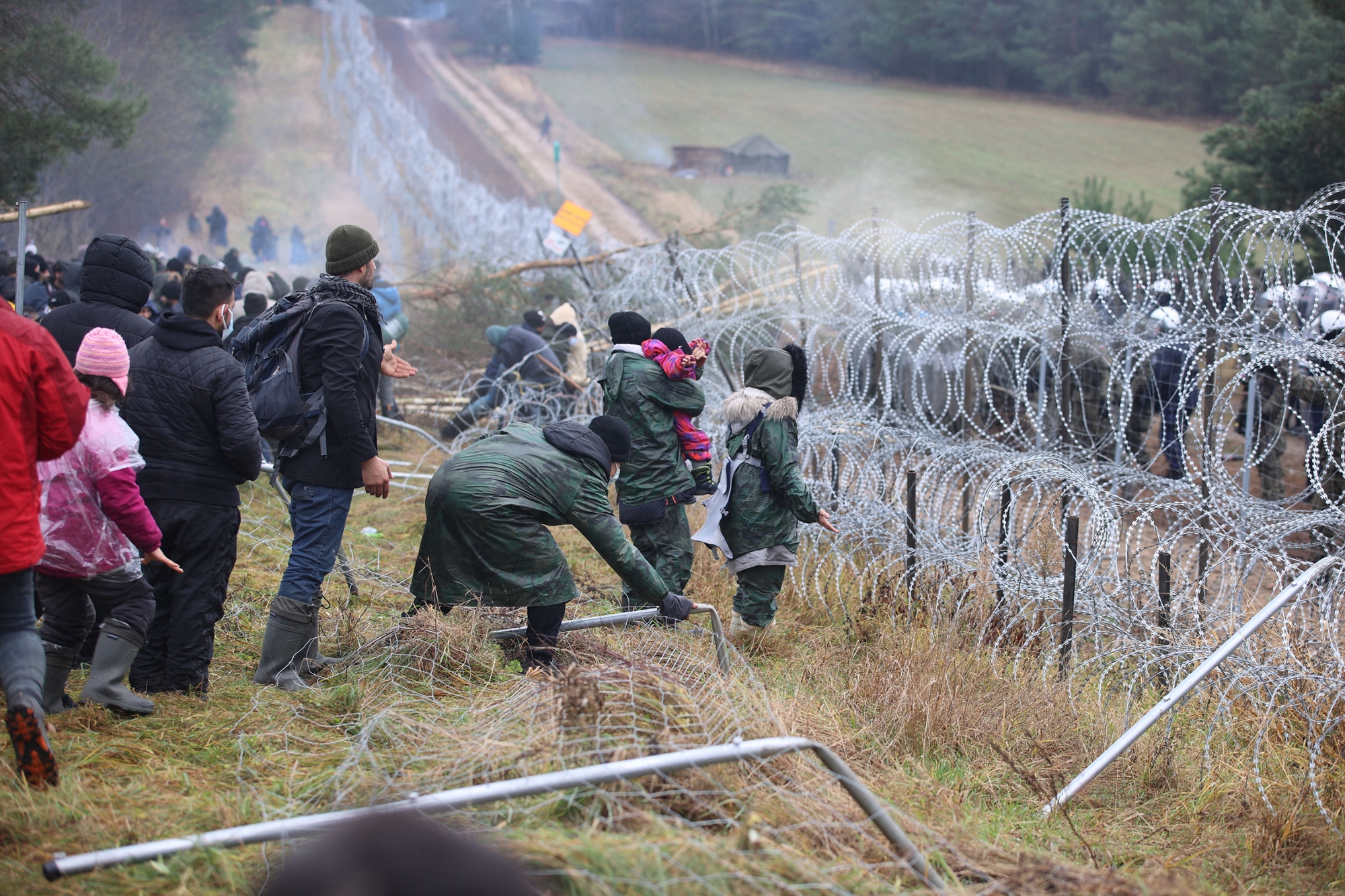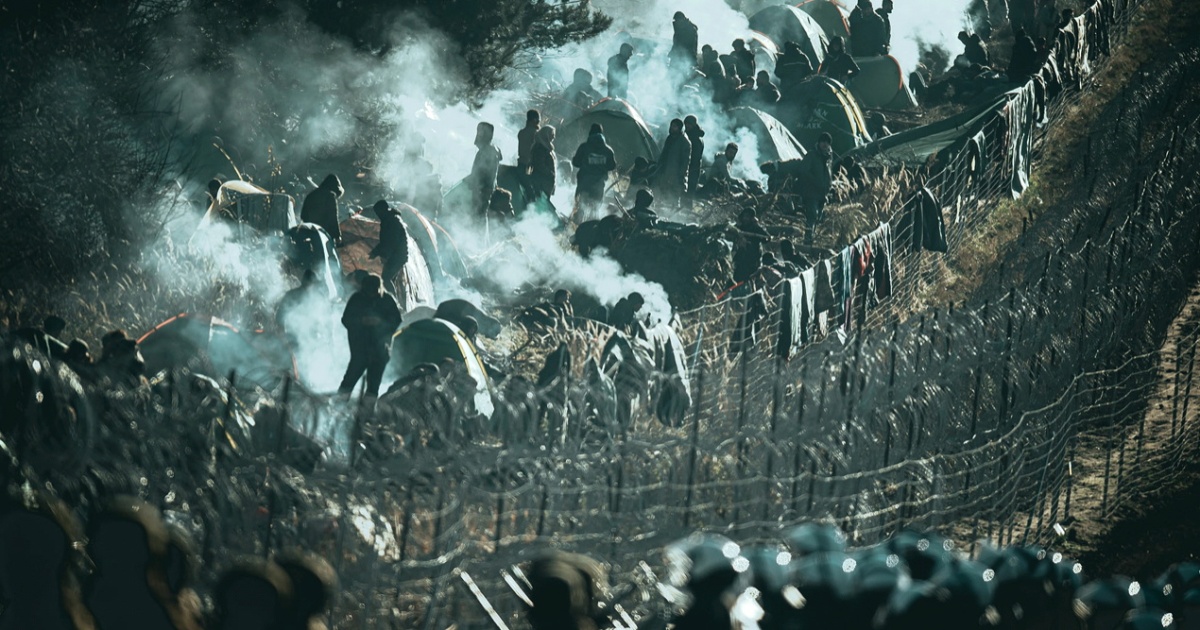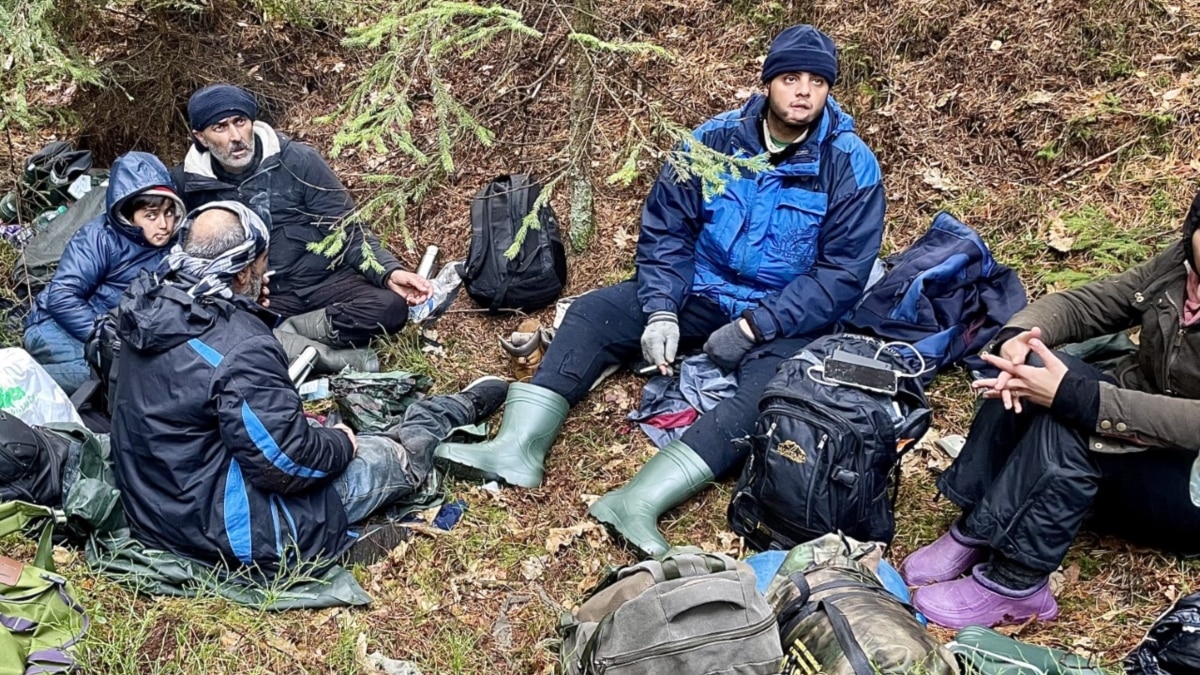
ether
… i “wybacz mój krzywy język”, jak mówi Rafa L.
- 10 Posts
- 0 Comments
Joined 3Y ago
Cake day: Jul 31, 2021
Bohoniki, Poland –
His name was Ahmad al-Hasan and he was 19. He wanted to continue his education, which he began in a Syrian refugee camp in Jordan. But his dreams will never come true.
On October 19, his body was found in the Bug river in eastern Poland, close to the Belarus border.
According to his companion who survived, al-Hasan was pushed to enter the water by a Belarusian guard. He could not swim.
On Monday evening, he was laid to rest in a grave at a Muslim cemetery in Bohoniki, a few kilometres away from the Belarus border, as his family members in Jordan and Turkey watched the ceremony via video-link.
[...]
Tatars have lived in the Polish-Belarus borderland for centuries.
[...]
For them, people looking for shelter at the Polish-Belarus border are not a threat. They are people, brothers in faith, whose lives are being lost.
[...]
“We should give them water and food. They are not a threat. They are afraid of us, they don’t know how people will act when they see them. I feel so sorry for them, for the children, the little children. People are warm at home and these people are outside, in one piece of clothing, it’s incredible how they survive,” said Ali, a Muslim Tatar.
“I feel bad. Once, [Jarosław] Kaczynski (leader of the governing Law and Justice (PiS) party) said that Poland is for Poles and Catholics. It breaks my heart. There are also Orthodox Christians here and Muslims, Tatars, so how can someone say that?”
cross-posted from: https://szmer.info/post/12646
A documentary reporting the situation on Polish Border through the voices of local inhabitants of the no-go zone of State of Emergency. Hard and moving testimonies.
There is also a [long version](https://invidious.snopyta.org/watch?v=ouGmmqIHMRQ).
Subtitles in Polish.
Sokolka, Poland – On Tuesday, three photojournalists went on their usual journey around villages near the Polish-Belarusian border to take photos of the escalating migration crisis.
[...]
About 4pm local time, the reporters approached a military camp located in Wiejki, a village. They left their car and informed guards that they are journalists.
“Good evening, we’re here at work. We know that you are too. We’re allowed to take photographs here. Even if you turn your back to us,” one of the journalists can be heard in a recording from the scene, obtained by Al Jazeera.
[...]
They returned to their car and wanted to leave to avoid trouble, but chaos erupted.
“Get out of the car! Get out of the f\*\*\*\*\*g car, now!” an unidentified uniformed man shouted in Polish. “You’re getting out now, for f*\*\*’s sake, you have a minute!”
cross-posted from: https://szmer.info/post/12640
> “You don’t fight Belarusian disinformation with censorship,” said the General Secretary of the European Federation of Journalists Ricardo Gutiérrez.
>
> “On the contrary, journalists should be allowed to document the situation as it is. We cannot accept that a government should encourage this kind of ban on journalistic coverage as soon as a sensitive situation arises. We believe that the state of emergency was introduced mainly to prevent the public from witnessing questionable activities along the country’s border with Belarus. Critics have accused the Polish authorities of violating international law by pushing asylum seekers back across the border.”
>
> Polish journalist Wojciech Bojanowski said on Twitter that the restrictions on Polish and international media meant that allegations circulating on Russian and Belarusian media that Polish security forces were tear gassing children were impossible to verify or debunk.
Un petit reportage sur la situation actuelle à la frontière, dans la deuxième partie l'entretien avec le patron de frontex.
Il dit qu'il y a 12.000 policiers et 13.000 militaires déployés.
> As part of state of emergency, migrants who entered Lithuania and were accommodated in the country will be stripped of right to communicate in writing vie e-mails or by cell phones, except for the possibility to contact the country’s authorities.
> While some high-ranking EU officials said that the authoritarian Belarusian regime «weaponises» migrants on the EU’s borders, European home affairs commissioner Ylva Johansson told MEPs in the Civil Liberties Committee on Tuesday, November 9, that, likely, Brussels will demand Poland, Latvia and Lithuania change recent migration laws in response to the ongoing Belarus border confrontation.
> Over 4,200 irregular migrants have crossed into Lithuania from Belarus illegally so far this year.
> According to the head of the Lithuanian Border Guard Rustam Lyubaev, different sources claim there are 10 000 to 50 000 illegal migrants currently staying on the Belarusian-Polish border. According to him, the news about migrants concentrating along the border were received at the end of last week, stressing that the Lithuanian border guard are preparing for possible developments.
I am not sure if the given numbers are accurate, but I think there is no way to know it.
[some quotes]
> The migrant crisis along Poland’s border with Belarus is a humanitarian time bomb ticking on the EU’s eastern edge. Thousands of asylum seekers have flown to Belarus in recent months, encouraged by expedited visa processing and growing numbers of daily flights from countries such as Yemen, Iraq, Somalia, Afghanistan, and Cameroon. Though the vast majority continue toward Poland, many have sought entry into neighboring Latvia and Lithuania, also EU members.
> It’s part of a state-sponsored scheme that rights workers and EU officials say amounts to a “hybrid war” waged by Lukashenka in retaliation for Western sanctions imposed on his government after he claimed a landslide victory in an August 2020 election widely considered rigged and launched a brutal crackdown on protests against his continued rule.
> “The main goal is to punish Lithuania and Poland for their backing of the opposition,” said Artsyom Shraybman, a Belarusian political analyst living in exile. “Lukashenka figures he has nothing to lose.”
----------------
> While the crisis has resonated across Poland, it’s in the east that life has been upended. Locals in Hajnowka and other towns near the border are subject to regular police checks during routine trips to work or the grocery store. Army trucks course through the streets, carrying troops who pack local hotels before duty on the border.
> “I feel like I live in a war zone,” said Kasia Wappa, a Hajnowka resident who helps migrants. “And the only people moving around at night are refugees, smugglers, and activists.”
> Many risk arrest to help, citing a moral code that they say is lacking in their government’s actions. There’s the hotel waitress who scours local roads looking for police checkpoints ahead of an attempt by activists to spirit a family of asylum seekers out of the woods; there’s the taxi driver who transports migrants who make it into town, facing hefty fines and a criminal record if he’s caught; and there are the many full-time volunteers like Wappa who spend their days and most of their nights bringing food and clothing to the migrants.
